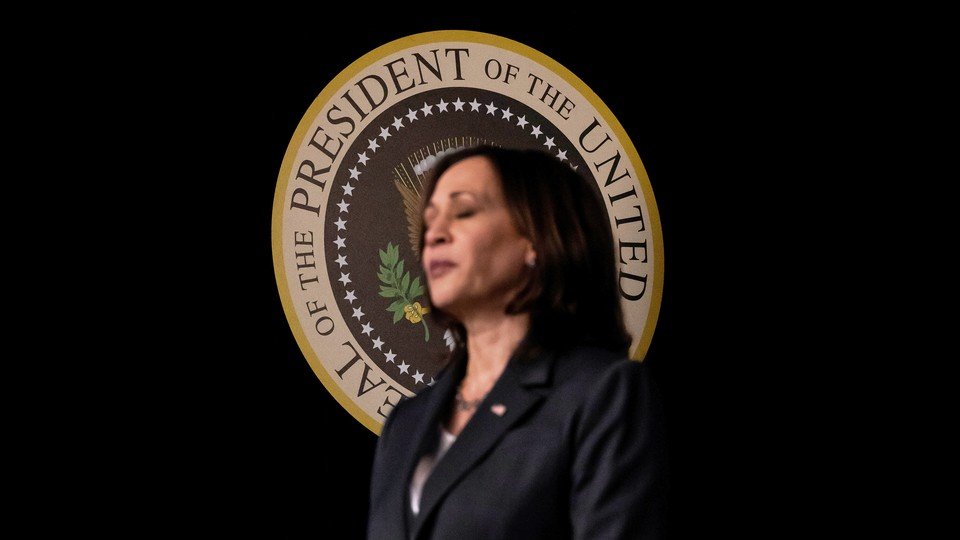Now Reading: The Challenges Facing Kamala Harris: A Critical Review of Her Presidential Prospects
- 01
The Challenges Facing Kamala Harris: A Critical Review of Her Presidential Prospects

The Challenges Facing Kamala Harris: A Critical Review of Her Presidential Prospects
Understanding Kamala Harris’s Track Record and Public Perception
Kamala Harris has had a prominent and varied career in public service, beginning with her tenure as District Attorney of San Francisco, followed by her role as California’s Attorney General, and culminating in her current position as Vice President of the United States. Her track record in these roles has been marked by both commendations and controversies. As District Attorney, Harris was praised for initiatives like Back on Track, a re-entry program aimed at reducing recidivism. However, her prosecutorial past also includes decisions that have been heavily scrutinized, such as her stance on wrongful convictions and her initial opposition to statewide standards for police body cameras.
When analyzing her tenure as California’s Attorney General, mixed reviews continue. On one hand, she fought against foreclosure fraud and championed the rights of homeowners, securing substantial settlements for Californians affected by the 2008 housing crisis. On the other hand, her actions regarding several wrongful conviction cases and her initially hesitant approach to same-sex marriage proponents have drawn criticism. These decisions form part of a complex narrative that shapes her public perception, particularly among more progressive voters.
Since becoming Vice President, Harris has encountered both support and skepticism. Critics argue that her policy positions have occasionally shifted, leading to questions about her consistency and political integrity. Specific instances, such as her debate performance while running for the Democratic presidential nomination, are often cited as moments where public perception was notably impacted. These moments have not only invited comparisons with her predecessors but have also cast a shadow on her potential presidential candidacy.
In juxtaposition with figures like Donald Trump, who also faced significant criticism yet maintained substantial support, Harris’s challenges appear unique. While Trump navigated public opinion through a combative and unfiltered approach, Harris’s challenges revolve around reconciling her detailed, legally complex decisions with public sentiment. Understanding this interplay of her track record and public perception is crucial in evaluating the hurdles she faces on the road to a potential presidential bid.
Communication Issues and the Struggle with Tough Questions
When assessing Kamala Harris’s presidential prospects, a significant point of discussion is her communication skills, particularly her ability to navigate tough questions during public appearances and debates. Although an experienced senator and former attorney general, Harris has faced challenges articulating clear, concise responses in high-pressure situations. For instance, during the Democratic debates, there were moments when her answers seemed rehearsed or lacking in substance, leading to a perception of evasiveness. In one notable instance, Harris struggled to provide a definitive stance on healthcare reform, leading to criticism regarding her consistency and readiness.
This pattern extends to her interviews, where Harris has occasionally appeared unprepared or hesitant, further impacting public perception. A pointed example was her interview with CBS’s Norah O’Donnell, where her response to a question about her stance on the Bernie Sanders-led “Medicare for All” plan was perceived as indecisive. Such instances exemplify her perceived lack of clarity and the resultant voter apprehension. This hesitance can lead to diminished voter confidence, as the populace often equates strong leadership with the ability to address challenging questions swiftly and confidently.
The implications of these communication issues are multifaceted. For one, they hinder her ability to win over undecided voters who may already be skeptical of her candidacy. Effective communication is crucial for building and maintaining a robust voter base. Additionally, opponents can exploit these weaknesses to paint Harris as unprepared or inconsistent, potentially swaying public opinion against her. In a political landscape where media soundbites and public perception play pivotal roles, Harris’s communication struggles could act as a significant barrier to her presidential aspirations.
Despite these challenges, it’s important to acknowledge that Harris also exhibits moments of strong communication. Her ability to connect with diverse demographics and her record of impassioned speeches on issues like social justice have garnered positive attention. However, to solidify her presidential prospects, addressing and overcoming her communication hurdles will be essential.
Lack of Unified Support Within the Democrat Party
The Democratic Party, known for its diverse range of ideologies and interests, finds itself in a state of flux, and Vice President Kamala Harris’s standing within this political landscape is emblematic of deeper intraparty divisions. While Harris had initially garnered significant enthusiasm during her presidential run and subsequent vice-presidential nomination, her relationship with various factions within the party has been strained by differing policy priorities and strategic visions.
One of the most prominent challenges facing Harris is her perceived inability to articulate a coherent agenda that resonates consistently with the Democratic base. Progressives within the party, for instance, have often expressed dissatisfaction with her moderate stance on key issues such as healthcare reform and climate change. They see her positions as falling short of the transformative change they advocate for. On the other hand, centrist Democrats view her alignment with progressive policies as a potential liability that could alienate moderate voters in crucial swing states.
These internal party struggles are not unfamiliar territory in American politics, yet they pose a significant hurdle for any candidate, particularly one eyeing the presidential office. Harris’s ability to mitigate these divisions and unify the party remains under scrutiny. The influence of key party members and their endorsement plays a pivotal role in shaping her political future. Figures like Bernie Sanders and Alexandria Ocasio-Cortez, representing the progressive wing, as well as party stalwarts like Nancy Pelosi, reflect the spectrum of support and opposition she must navigate.
Comparatively, other Democrats have showcased a more adept handling of this complex dynamic. For instance, President Joe Biden’s capacity to appeal to both centrists and progressives was instrumental in his successful 2020 campaign. Similarly, politicians like Elizabeth Warren and Pete Buttigieg have demonstrated the ability to build broad-based coalitions. Harris’s challenge lies in bridging these ideological gaps and fostering a unified front that can galvanize the entire Democratic electorate.
The potential impact of these internal schisms on Harris’s campaign cannot be understated. If she fails to consolidate support across the party’s spectrum, her presidential prospects might falter before gaining substantial momentum. Therefore, addressing the lack of unified support within the Democrat Party is not just a tactical necessity but a critical determinant of her future political trajectory.
Moral Compass and Addressing Critical Issues: The Voter’s Perspective
Kamala Harris’s moral and ethical standing has been a subject of intense scrutiny among the electorate. For many voters, particularly those who identify as ‘true born and raised Americans,’ her unpredictability and reluctance to address certain critical issues raise significant concerns. Harris’s record includes several instances where her decisions and statements have stirred controversy, casting doubts on her reliability and integrity.
One notable instance is her shifting stance on healthcare reform. Initially a staunch supporter of “Medicare for All,” Harris later moderated her position, causing confusion and mistrust among her base. This apparent inconsistency challenges her credibility and makes some voters question her commitment to progressive values. Furthermore, her prosecutorial record as California’s Attorney General has been a focal point of debate. Critics argue that her tough-on-crime policies disproportionately affected minority communities, which contradicts her current advocacy for criminal justice reform.
Public reactions to these controversies are polarized. Supporters argue that Harris’s evolution on these issues reflects a pragmatic approach to governance, necessary in the unpredictable landscape of American politics. Conversely, her detractors view these shifts as emblematic of a deeper ethical compromise, suggesting that her positions are more about political expediency than genuine conviction.
The broader implications of these moral and ethical concerns are significant for Harris’s candidacy. Voters evaluating her against other candidates, particularly former President Donald Trump, might be struck by the contrast. Trump, despite his own myriad controversies, has often been perceived as consistent, if not rigid, in his stances. Harris, in contrast, faces the unique challenge of maintaining a balance between evolving her policies and retaining voter trust.
These moral and ethical challenges highlight the complex landscape Harris must navigate in her presidential prospects. The electorate’s demand for transparency and consistency is a critical hurdle Harris must overcome to solidify her appeal and build the trust needed to secure broader electoral support.













